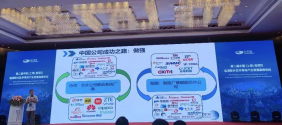China is leading in 6G patents world wide
TOKYO -- China is honing its technical skills in sixth-generation communication networks, which are expected to be rolled out commercially as soon as 2030.
China's 6G development had been expected to slow due to sanctions against Huawei Technologies imposed by the U.S. government under former President Donald Trump in 2019, but China has maintained its competitiveness by mobilizing state-run companies and universities.
Nikkei worked with Tokyo-based research company Cyber Creative Institute to survey around 20,000 patent applications for nine core 6G technologies, including communications, quantum technology, base stations and artificial intelligence.
China topped the list with 40.3% of 6G patent filings, followed by the U.S. with 35.2%. Japan ranked third with 9.9%, followed by Europe with 8.9% and South Korea with 4.2%. Countries with more patent filings tend to lead in terms of advanced technology and have a bigger say on industry standards.
The upcoming generation of mobile communications technology, which is said to be more than 10 times faster than 5G, is expected to enable fully autonomous driving, high-definition virtual reality and worldwide internet connections, even in remote deserts.
China's patent applications are mostly related to mobile infrastructure technology. In the 6G era, aerial coverage, such as satellites, as well as ground base stations for broader radio bands, will be needed. Many of the latest patents have been filed by Huawei, which controlled 30% of the world's base stations in 2020. Other big Chinese patent holders include state-run companies such as State Grid Corporation of China and China Aerospace Science and Technology.

Huawei held the largest number of 5G patents with a nearly 12% share. The Chinese mobile communications giant is likely to have a strong presence in 6G as well.
The company said that it will begin 6G development on its own notwithstanding its U.S. ban and published a 5G-advanced white paper in August.
In November last year, the University of Electronic Science and Technology of China successfully launched the world's first 6G satellite. Experts had thought the U.S. ban would make it difficult for Chinese companies to build next-generation base stations or make cutting-edge smartphones, but the country's government-led basic research has not lost steam.
China has not only made next-generation communications technology a priority under its "Made in China 2025" initiative but has provided financial help to countries as it builds 5G networks in Africa and the Middle East.
"Companies other than Huawei are also obtaining 6G patents, indicating that China's technological development is improving," said Takafumi Saito, director at Cyber Creative Institute.
Meanwhile, the U.S., which has many smartphone and internet companies, has a high degree of technical prowess in terminals and software. Qualcomm and Intel have acquired many patents for chips used in smartphones and other IT equipment.
In the U.S., the Next G Alliance initiative, which counts Google and Apple among its members, has announced its outlook for the 6G era, and the federal government has also allowed free access to test radio waves. When 6G is rolled out, communications will likely be integrated with AI, virtual reality and augmented reality technologies. Other U.S. companies with 6G-related patents include IBM and Microsoft.
As for the third-ranked Japan, Nippon Telegraph & Telephone has many patents dealing with optical communications and mobile infrastructure networks in urban areas, including technologies for mitigating data congestion and delays.
The International Telecommunication Union, a U.N. body, and industry groups are expected to begin discussing 6G standardization around 2024. China, which has many related patents, has a strong voice in the organization and likely to have the upper hand in rule-making.
Washington has tried to slow the development of Chinese mobile communications products by imposing a de facto embargo on sales of cutting-edge chips to Huawei, but a senior ITU official said it will be difficult to exclude China from discussions of the matter.
The U.S. and China are not the only ones competing for supremacy in 6G. In Europe, Swedish telecommunications equipment maker Ericsson and the University of Oulu in Finland have published 6G white papers, and the European Union has played a key role in standardization, including the establishment of a research group by the European Telecommunications Standards Institute. In South Korea, Samsung Electronics and LG Electronics have already set up 6G development centers, and the government is subsidizing development efforts.

